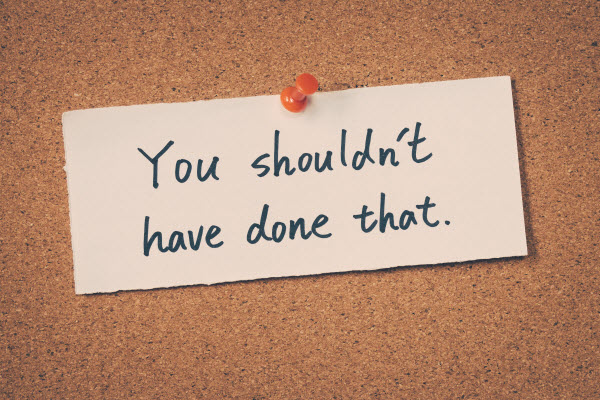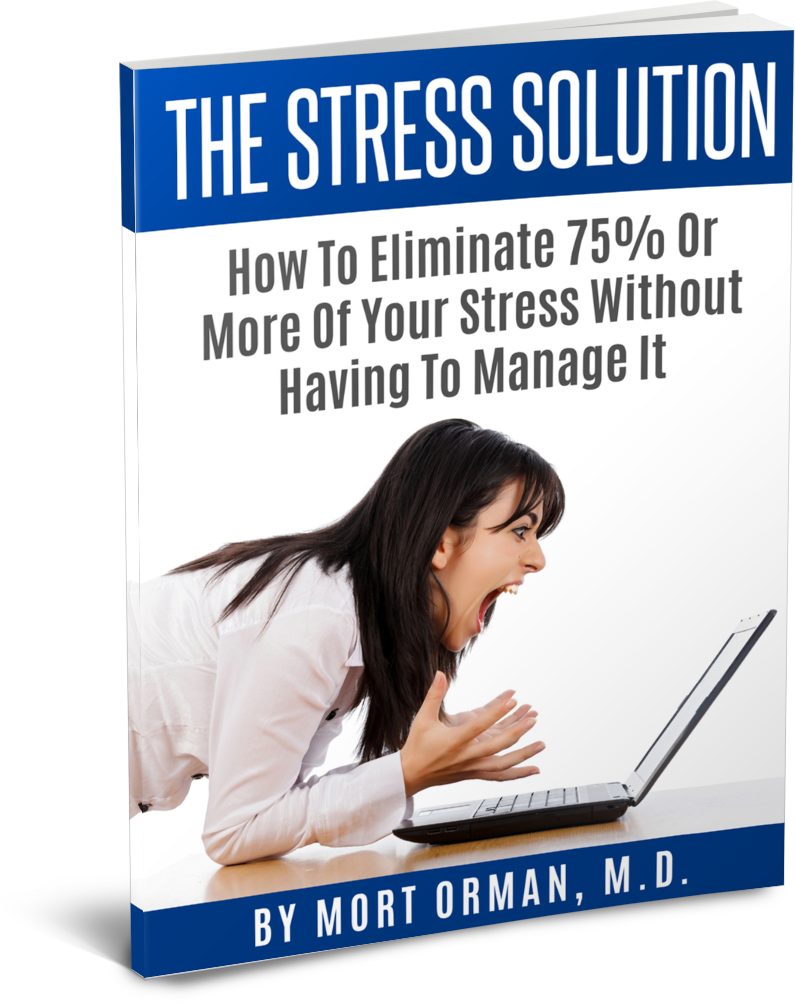Dr. Mort Orman here and today I regret to inform you that I will be talking about regrets.
Actually, I don’t regret this, but what if I did?
What would have to be going through my mind (or body) if I was truly feeling regretful…about anything?
That’s what I want to discuss with you today, as this is the second of a three-part series on Guilt, Regrets And Verbal Self-Flagellation.
If you didn’t read Part 1 on the topic of Guilt, I highly recommend you do so.
And while Guilt and Regret are two very similar emotions, there are some subtle differences that are worth noting.
Guilt .vs Regrets
Both Guilt and Regret arise as feelings in our bodies when we tell ourselves certain specific types of stories.
For both emotions, we are typically looking backwards, into the past, while focusing on things that happened which we deem to be “bad,” “wrong,” “reprehensible,” ”horrible,” or otherwise “unfortunate.”
So there are the actual “facts” about whatever happened in the past, and then there are the stories we tell ourselves, like:
- “That was very bad”
- “What he/she did was horribly wrong”
- “Wasn’t it awful that (some group) did that”
- “What kind of person would do something so heartless and cruel”
And with regard to both Guilt and Regret, we tell ourselves the above types of stories, plus we also tell ourselves the story that somehow we were largely “responsible or to blame” for whatever happened in the past.
When we see ourselves as 100% (unilaterally) responsible or to blame, we end up feeling Guilty.
We also see ourselves as responsible when we feel Regret. But in this case, we may be able to accept the roles other people and factors may have played, only we can’t accept the part that we played in creating the past.
With Regret, we tell ourselves some additional negative stories, like:
- “I shouldn’t have done what I did”
- “I should have known better”
- “I should never have made that decision”
- “I should never have let myself be abused for so long”
- “I should have ended the relationship sooner”
- “I should have taken better care of myself, my health, my spouse, or my kids, etc.”
The Hallmark Of Regrets
Thus, the hallmark of Regret is looking at the past and telling yourself two very specific types of negative stories:
- Whatever happened in the past was truly something negative;
- The fact that you participated in causing it to happen is also a negative (a negative story about YOU!)
The problem with stories of negativity—all stories of negativity—is that they suffer from the very same design flaw as stories about unilateral causality or blame.
This same flaw is that they are either partly or completely FULL OF BULLSH*T.
Very few things that happen in life are ever entirely negative. And for every negative story you tell yourself about your past, other human beings have been able to create positive, uplifting stories to characterize the very same types of events.
And it’s almost certain that every negative story you tell about YOU—yes, every single one of them—is also heavily laden with BULLSH*T.
So to look back at your past with Regret is to fall prey to two distorted ways of looking both at what happened in your past, and also what it says about YOU for letting it or contributing to it happening.
Therefore, whenever you are feeling either Guilty or Regretful, this should be a wake-up call for you.
It should be a wake-up call to realize there’s a high probably some very deep-seated BS is lying hidden behind both of these feelings—and it then becomes incumbent upon you to ferret it out and really tell the truth about it.
To your health, happiness and success,
Dr. Mort Orman, M.D.
International Speaker, Author And Founder Of The Stress Mastery Academy | http://DocOrman.com


